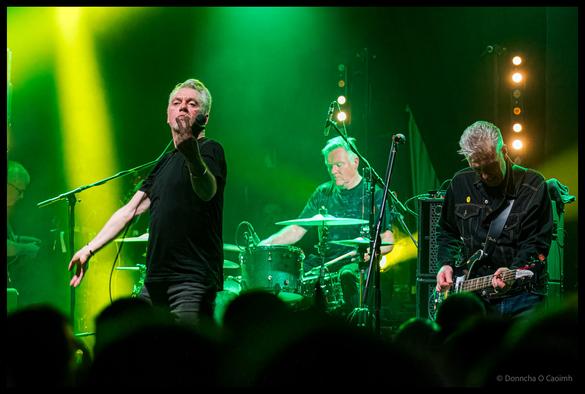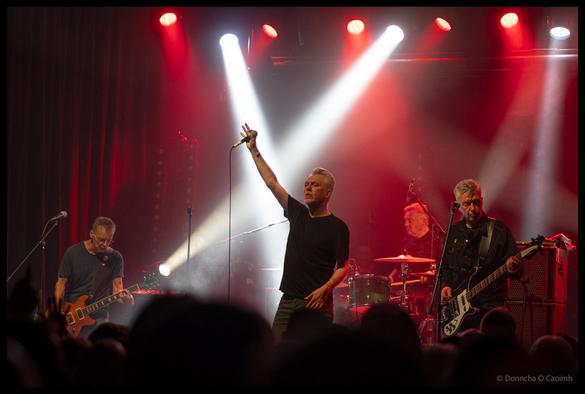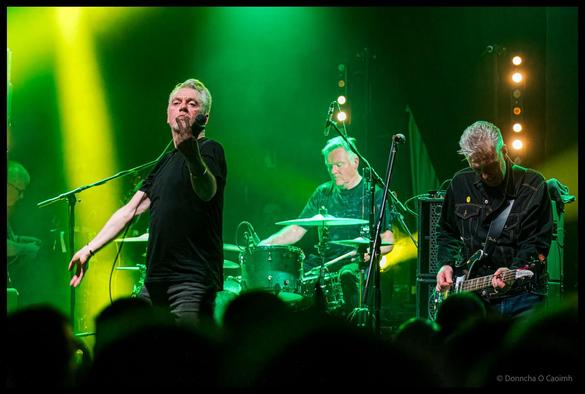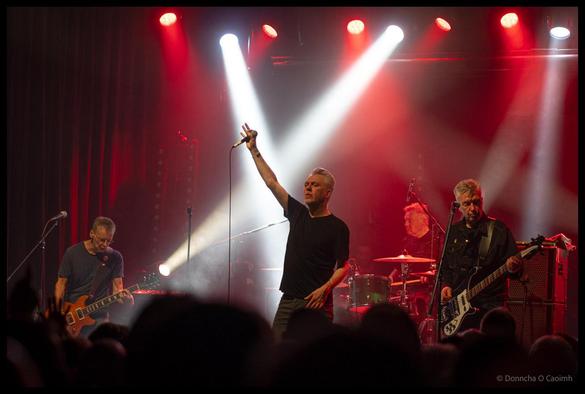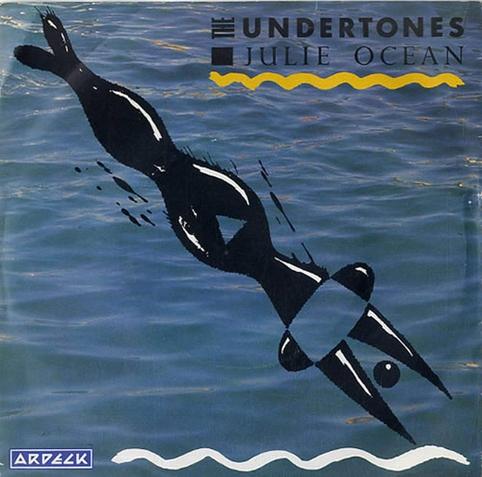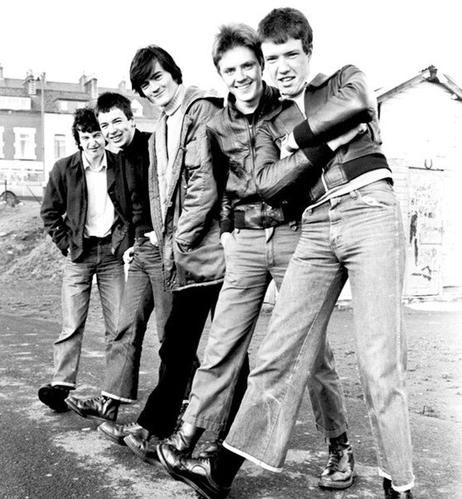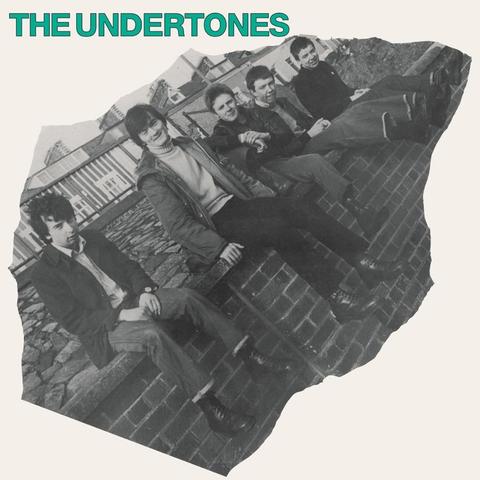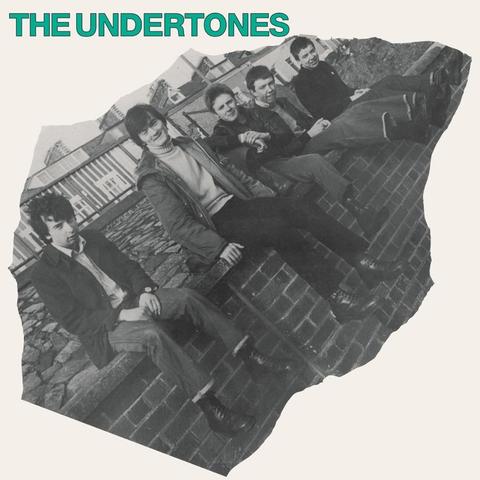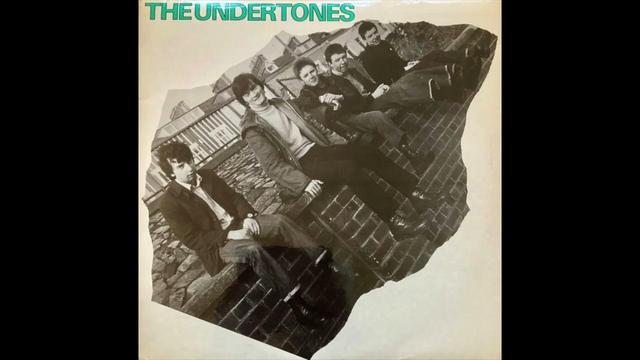The Undertones Play “Julie Ocean”
Listen to this track by Northern Ireland punk turned post-punk heroes The Undertones. It’s “Julie Ocean”, a single taken from their 1981 album Positive Touch, their third. This tune was the second single from the record, following up their hit single “It’s Going to Happen”, a song that put them in the top twenty in Britain and in Ireland. In contrast to that more musically buoyant offering, “Julie Ocean” is the more moody and less immediate of the two. But it’s perhaps a song that’s more indicative of a direction in which the band was headed by their third LP. It revealed that The Undertones were straying away from their pure punk pop sound on which they’d built a reputation.
“Teenaged Kicks”, and subsequent “My Perfect Cousin” from their first two albums respectively set The Undertones up as spokesmen for the spotty teen underachiever set by the late Seventies and early Eighties. Those two anthems, and other songs of theirs besides, still pack a wallop by perfectly capturing a specific mindset of the under-twenty crowd. But unlike the narrators in their songs, The Undertones had ambitions beyond horny fantasies, chocolate bar obsessions, and a hatred of University Challenge. By their third record, they wanted to evolve their sound and explore different ways to arrange and produce their music in the studio.
“Julie Ocean” is a standout example of that distinct departure into newer musical territories. Instead of Ramones-style kinetic energy, “Julie Ocean” is rife with echoey and woozy Sixties pop influences that include Love, Aftermath-era Rolling Stones, and others. It’s also their most experimental-sounding single to date by that point, with its melody and the signature guitar figure being slightly quirky, edging on the gently discordant in places before resolving into moodier pop changes streaked with glorious melancholy. On the album version of the song, the extended instrumental outro coupled with singer Feargal Sharkey’s ah-ah vocal represents another notable departure from the pure sugar-rush innocence of their late-Seventies pop punk sound.
By 1981, The Undertones wanted to write different kinds of songs, even if they touch on similar topics when compared to their earlier work. In a way, “Julie Ocean” is the anti-“Teenage Kicks”. The central figure in the narrative is no blank canvas on which to project a fantasy. Even if she also may be a composite figure like the object of lust in “Teenage Kicks”, this time she reflects real emotions and motivations which are integral to who she is in all her complexity and contradictions. This song is illustrative of the difference between a fantasy and a reality, and indirectly between adolescence and adulthood, too.
In this, “Julie Ocean” suggests the gap between expectations we tend to put on other people and the agency they have to go in the opposite direction if they choose to do so—which they often do. Within that, our dancing hearts are going to be broken. We may go for the gold with that exciting, passionate person who fires up our imaginations. But sometimes, we’ll end up with the silver instead when we find that we can’t reach them or truly understand who they are in the way we hope. We can’t capture that person and contain them as we do in our teenage fantasies. Even if things start off promising, nothing good lasts forever. Sometimes, they don’t even start. People are deeper than that. Like an ocean, we can’t contain them. So, we have to let them go, sometimes.
The Undertones as they were in January 1979 (image: Larry Doherty – public domain.).It’s important to recall that this song is from the same band who put out another tune about mismatched feelings: “One Way Love”. That single took the girl’s side in the titular conflict of unrequited love. On “Julie Ocean”, it’s the music itself that’s on her side; a gentle and melancholic sonic canvas that communicates love and connection as things that is very often about leaving what we think we’re owed behind to make room for what another person deserves, even if it’s in our absence.
Cries of that’s typical girl may be ones of frustration when the object of our fascination doesn’t follow the script we’ve written for them. But understanding that the people we fall for aren’t obligated to lend us their time or their affection in return is a big part of growing up. With that in view, “Julie Ocean” isn’t an angry song about being denied. Instead it provokes the idea of allowing people their freedom from the expectations we feel inclined to put on them. It suggests that the girl you fancy so much has an inner life of her own beyond you. Coming to terms with the fact that you might not ever get to share in that, and being OK with it, is a big part of growing up, too.
In this respect alone, the Undertones hinted that they had grown up as musicians, songwriters, and as people by 1981. They continued their exploration of nuanced pop music that borrows from multiple stylistic streams beyond their initial punk roots on their fourth record—1983’s The Sin of Pride. That release is the last one featuring the original lineup. Lead singer Feargal Sharkey announced his intentions to leave the group that same year. After fulfilling their touring commitments, the band broke up soon after.
Feargal Sharkey’s solo career eventually produced his 1985 hit single of Maria McKee’s “A Good Heart”. His solo period spanned into the early Nineties, after which he began in roles that would make him a prominent music industry figure behind the scenes. Being a champion of well-regulated waterways in the UK for many years by now, Feargal Sharkey is currently Chair at Amwell Magna Fishery where he continues to challenge governments to be accountable for maintaining clean water and healthy ecosystems.
Songwriter and guitarist John O’Neill and his brother lead guitarist Damian O’Neill formed That Petrol Emotion by 1984, further exploring the wide range of styles hinted at during the latter part of the Undertones era. The Undertones got back together without Sharkey at the end of the Nineties and produced a brace of albums in the 2000s. They are a going concern today. Check out theundertones.com to keep up with their more recent movements.
Enjoy!
#80sMusic #IrishMusic #popPunk #postPunk #songsAboutWomen #TheUndertones
